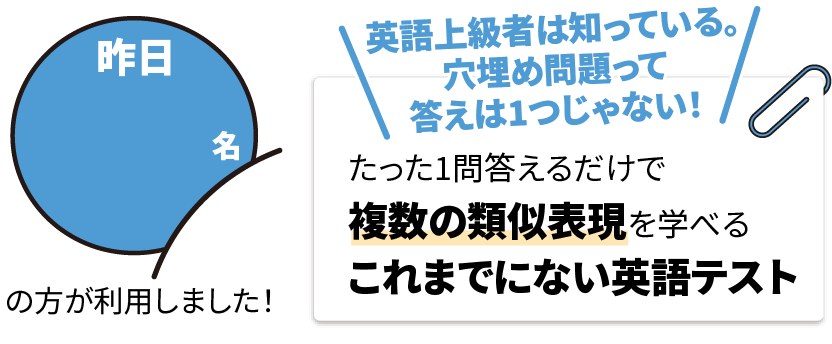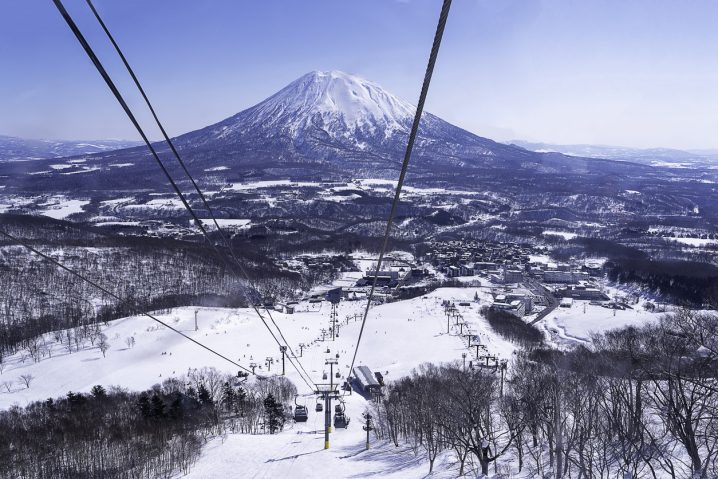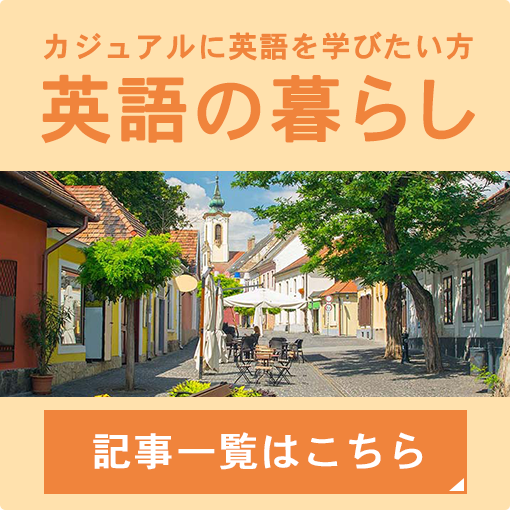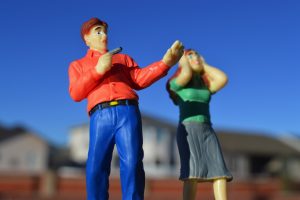Hello, this is Simon.
まず、Simon先生の英語ブログを読んでみましょう!
From time to time, I Facetime my old friend from high school. He lives in Niseko, Hokkaido. It’s funny how things end up. If someone would have told us in high school that when we were 50 we would both be living in different parts of Japan, we would never have believed them.
Being old friends, we like to hassle each other. When I called him the other day, the first thing he said was “Hey mate, looks like you are getting a bit of snow on the roof.” I laughed and replied, “There’s not a snowball’s chance in hell of that happening. I’m still in the prime of my life!” I asked how things were where he lived, and he told me that they had had massive snow falls, in fact they had been snowbound briefly.
I also asked how business was going. Because he works in a resort town, I worry about the effects that COVID-19 will have on his business. He told me that things weren’t so bad for him because the company he manages deals with mostly local tourists. People have still been coming to Niseko from around Japan, so his business was still ticking over. However, some businesses there have almost 100% foreign customers, so in the first winter after COVID hit Japan, the situation really began to snowball for them.
Even though there were less people coming to Niseko to ski, he told me he was actually snowed under with work. He had taken up the jobs of clearing snow from things like roads and roofs as a side business, and there was a backlog of customers for it. I didn’t doubt he was very busy with this. After all it had been snowing heavily, and he was very good at selling things, such as goods and services. We used to say that he could “sell snow to Inuit”.
He asked about my family and I told him that we were all doing fine, although my daughter hasn’t been such a big fan of this cold weather. I explained that it is difficult to get her up on cold mornings and even walking up the road to daycare takes some negotiation. He laughed and said “She’s soft. When I was a kid I used to walk 10 miles to school in the snow!” I also laughed as I realized how old we had gotten…
Snow seems to be a bit of a theme for this winter. With that in mind, I thought I would introduce some idioms related to snow.
ーそれでは、本文の中からピックアップした英語表現を見てみましょう!
“snow on the roof”
The expression “snow on the roof” means to have gray or white hair as a result of getting older. I think this one is pretty easy to picture.
“not a snowball’s chance in hell”
If something doesn’t have “a snowball’s chance in hell”, it means it very unlikely or impossible (e.g. There isn’t a snowball’s chance in hell of our team getting a gold medal in this event.) With hell being a very hot place, you can imagine that a snowball wouldn’t last very long there.
“they had been snowbound”
To be “snowbound” means to be unable to travel or go out as a result of heavy snow. It also means that roads cannot be used because of heavy snow (e.g. All main roads into the town have become snowbound.)
“the situation really began to snowball”
The verb “snowball” means for something to quickly grow bigger and bigger.
It is often used to talk about problems or bad situations (e.g. What began with a slight drop in the stock market, soon started to snowball out of control.) Have you ever seen in cartoons when a snowball rolls down a hill and gets bigger and bigger? It is that kind of effect.
“snowed under”
To be “snowed under” means that you have more work or other commitments than you can manage (e.g. In the first few months of the pandemic, the company was completely snowed under with orders for masks.)
“he could sell snow to Inuit”
This expression is used to describe someone who is very persuasive or very good at selling things.
The Inuit live surrounded by snow, so it is something they would never consider buying. Imagine though, someone who could actually get them to buy snow. They would be an extremely good salesperson. The original wording doesn’t use “Inuit”, but an older word “eskimo”. It is a lot more common, but the word is now deemed offensive, so I would avoid using it.
“I used to walk 10 miles to school in the snow”
This is a commonly used expression by old men, when they want to express how easy the younger generation has it.
My father used to say it whenever I complained about how tough something was. It is said as a joke, and people often add things like “uphill” and “barefoot”, just to make it that bit more over the top.
Keep warm and stay safe.
See you next month!

Hello! My name is Simon.
I am from New Zealand, and have been living and teaching English in Japan since 1999.
My hobbies include movies, playing the guitar, gardening and hiking.
※このブログでは英語学習に役立つ情報アドバイスを提供していますが、本ブログで提供された情報及びアドバイスによって起きた問題に関しては一切、当方やライターに責任や義務は発生しません。
※ここでの情報や助言を参考に英文を書いたり下した判断は、すべて読者の責任において行ってください。ここに掲載されている記事内の主張等は、個人の見解であり当社の意見を代弁・代表するものではありません。








 (3 イイネ!が押されています)
(3 イイネ!が押されています)




























コメントする